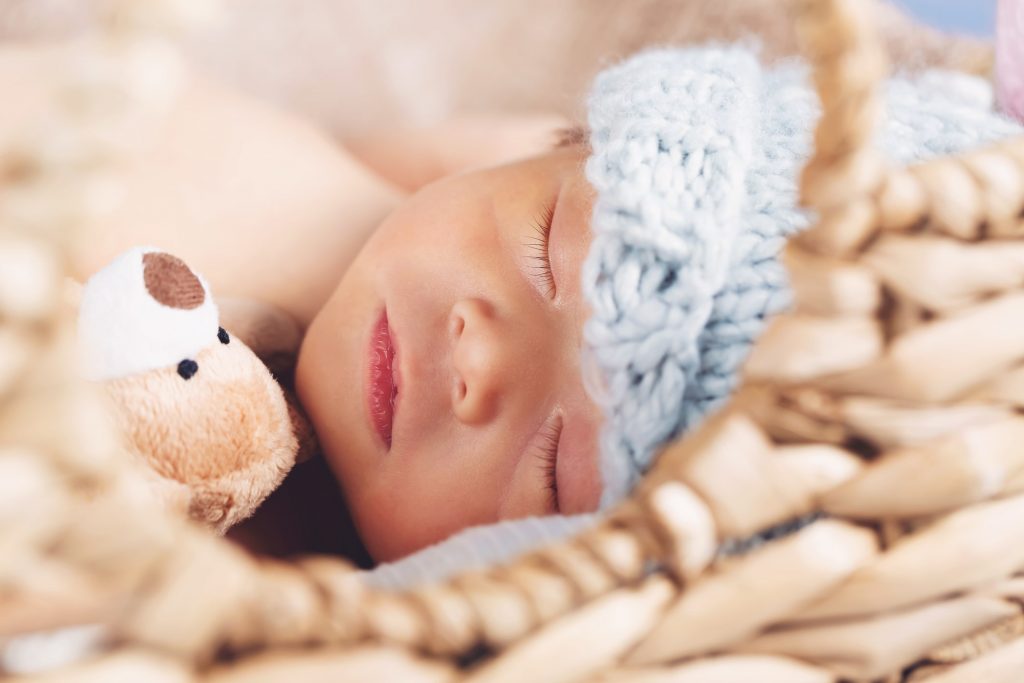If your child has an inguinal hernia then the first questions you’ll ask will probably be whether it hurts and if there are any risks. The answer to the first question can depend on how bad the hernia is, but even if it is very mild it’s important to be aware of the answer to the second question. An inguinal hernia can cause serious problems if it isn’t treated correctly.

What is an Inguinal Hernia?
A hernia happens when part of an organ bulges out through the wall of tissue that is supposed to enclose and protect it. Hernias can happen when there is a hole or weak spot in the surrounding tissue. Inguinal hernias are a type of hernia that usually happen in babies.
The inguinal hernia forms if there is a hole in the sac of tissue that usually surrounds the intestines. We all have a hole in this sac as it forms in the womb, but it should be sealed before we are born. If there is still a hole left behind, then the tissue inside the sac can slip through it. An inguinal hernia forms when part of the intestine bulges out through the hole. In girls, it can also happen if one of the ovaries passes through the hole. In boys, the hole may allow fluid into the sac.
Children who develop inguinal hernias were born with a hole left in the sac around their intestines. However, the hernia itself can form months or years later, as tissue might not slip through the hole right away.
Are Inguinal Hernias Painful?
Having an organ that has slipped out of place sounds painful, but a hernia won’t usually hurt right away. The only symptom at this stage is a visible lump or bulge between the thigh and the belly or near the groin. The bulge will probably come and go at first, as the tissue slips in and out of the hole. It might only appear when your child is crying, straining or standing.
However, if the tissue in the hernia becomes stuck, then it can be painful. The lump will feel hard and won’t go away. It may also start to change colour. Children may cry or be fussier than usual. Older children may complain that it hurts when they move around. Children can also vomit, become constipated or refuse to eat.
Risks of Inguinal Hernias
A hernia that comes and goes isn’t immediately harmful, but if it becomes stuck or strangulated then it can be very serious. The blood supply to the tissue that is stuck can be cut off, so it can start to die. If the intestines are trapped in the hernia, it could also prevent food from moving through them properly. As well as being very painful for your child, this could cause serious problems.
A trapped or strangulated hernia is a medical emergency that requires immediate treatment. However, it’s important not to ignore a hernia even if it doesn’t seem painful. Getting the right treatment will prevent the hernia from becoming strangulated.
What to Do If Your Baby Has an Inguinal Hernia?
Even if your baby doesn’t seem to be in pain, it’s important to see a doctor if you find a lump or swelling that could be an inguinal hernia. The doctor will be able to confirm the diagnosis and provide treatment. If your baby does have a hernia and there’s a risk that it could become strangulated, then it will usually need to be repaired surgically. It is sometimes possible to push the hernia back into place without an operation, but in many cases, it is better to have the procedure than to risk the hernia becoming strangulated in the future.





 UA
UA CP
CP FR
FR IN
IN JA
JA

